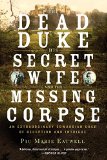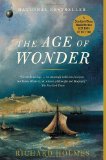Summary | Excerpt | Reviews | Beyond the book | Read-Alikes | Genres & Themes | Author Bio

Britain's Most Ineligible Bachelor and his Enlightened Quest to Train the Ideal Mate
by Wendy MooreSometimes truth really is stranger than fiction. That's certainly the case with the story Wendy Moore tells in How to Create a Perfect Wife: Britain's Most Ineligible Bachelor and His Quest to Train the Ideal Mate. Moore combines engaging storytelling with exhaustive and impressive research as she brings to life the misadventures of the eighteenth-century gentleman Thomas Day.
 Day, who was born in 1748 in London, was in many ways both a product of and a reaction to the prevailing forces of his day. Although he certainly took to heart (almost to a fault, as we'll see) the social and philosophical questions prevalent and popular at the time, he was also resistant to many of the eighteenth century's highly codified norms of appearance and behavior. One of his friends, Richard Edgeworth, remarked that "Mr. Day's exterior was not at that time prepossessing, he seldom combed his raven locks, though he was remarkably fond of washing in the stream." Moore, drawing largely on accounts of Day by his contemporaries, shows readers a man who eschewed conventional standards of appearance and who was socially awkward to the point of rudeness, particularly in the company of women.
Day, who was born in 1748 in London, was in many ways both a product of and a reaction to the prevailing forces of his day. Although he certainly took to heart (almost to a fault, as we'll see) the social and philosophical questions prevalent and popular at the time, he was also resistant to many of the eighteenth century's highly codified norms of appearance and behavior. One of his friends, Richard Edgeworth, remarked that "Mr. Day's exterior was not at that time prepossessing, he seldom combed his raven locks, though he was remarkably fond of washing in the stream." Moore, drawing largely on accounts of Day by his contemporaries, shows readers a man who eschewed conventional standards of appearance and who was socially awkward to the point of rudeness, particularly in the company of women.
Day's impression of what women should (and shouldn't) be and do was largely cobbled together from the philosophers and poets of the time, as well as his own family history (he never quite forgave his mother for remarrying after his father's death). He had a vision of a woman who would accompany him in his "unremitting practice of the severest virtue," who would be intelligent and educated but uninfluenced by the fashions for which Day himself showed so much disdain; she'd be eager to join him in a life of the mind, enjoying few comforts and even fewer friends.
After a couple of spectacular failures at wooing a wife among his peer group, however, Day, still only in his early twenties, embarked on a new kind of experiment, inspired in large part by the works of Enlightenment philosopher Jean-Jacques Rousseau. If he couldn't find an ideal mate, Day reasoned, he would create one, bringing up a girl from a very young age with the sole aim of making her into his perfect wife. So Day, whose personal fortune combined with the overcrowded conditions at many of the country's foundling homes served to grease the wheels, visited an orphanage. Under the auspices of finding a young housekeeper for a married friend, Day chose a twelve-year-old girl named Ann Kingston, whom he quickly renamed Sabrina. Hedging his bets, Day also returned to the orphanage not long afterwards, finding another young girl (this one a vivacious blonde instead of a quiet brunette) whom he renamed Lucretia from her original name, Dorcas.
Following the best of Enlightenment philosophies regarding education, as well as his own idiosyncratic desires for a supremely educated but utterly subservient helpmeet, Day strove to mold these young women into something resembling his ideal. Of course, he would eventually have to choose one or the other - and his method of doing so is just the beginning of this provocative and almost unbelievable history.
Moore's previous book, Wedlock, explores the bizarre-but-true story of a disastrous eighteenth-century marriage and divorce. Clearly she has the knack for distilling impressive research and relating it in a way that is as engaging to read as any novel. Although Day's story has been the subject of other works, both fiction and nonfiction, Moore manages to bring to light new details - particularly about young Sabrina - that were previously unknown before the writing of this book. Even more importantly, Moore successfully contextualizes Day's story, portraying him not (just) as a misogynistic eccentric but as a particular - if at times somewhat distorted - product of the eighteenth-century forces of rationalism and idealism that swirled around him. In the end, readers are left not only with an entertaining portrait of one young man's experiment but also with a far greater understanding of the eighteenth century's obsessions and contradictions.
![]() This review
first ran in the May 8, 2013
issue of BookBrowse Recommends.
This review
first ran in the May 8, 2013
issue of BookBrowse Recommends.

If you liked How to Create the Perfect Wife, try these:

The Dead Duke, His Secret Wife, and the Missing Corpse
by Piu Marie Eatwell
Published 2016
One of the most notorious and bizarre mysteries of the Edwardian age, for readers who loved The Suspicions of Mr. Whicher

by Richard Holmes
Published 2010
A riveting history of the men and women whose discoveries and inventions at the end of the eighteenth century gave birth to the Romantic Age of Science.
Your guide toexceptional books
BookBrowse seeks out and recommends the best in contemporary fiction and nonfiction—books that not only engage and entertain but also deepen our understanding of ourselves and the world around us.